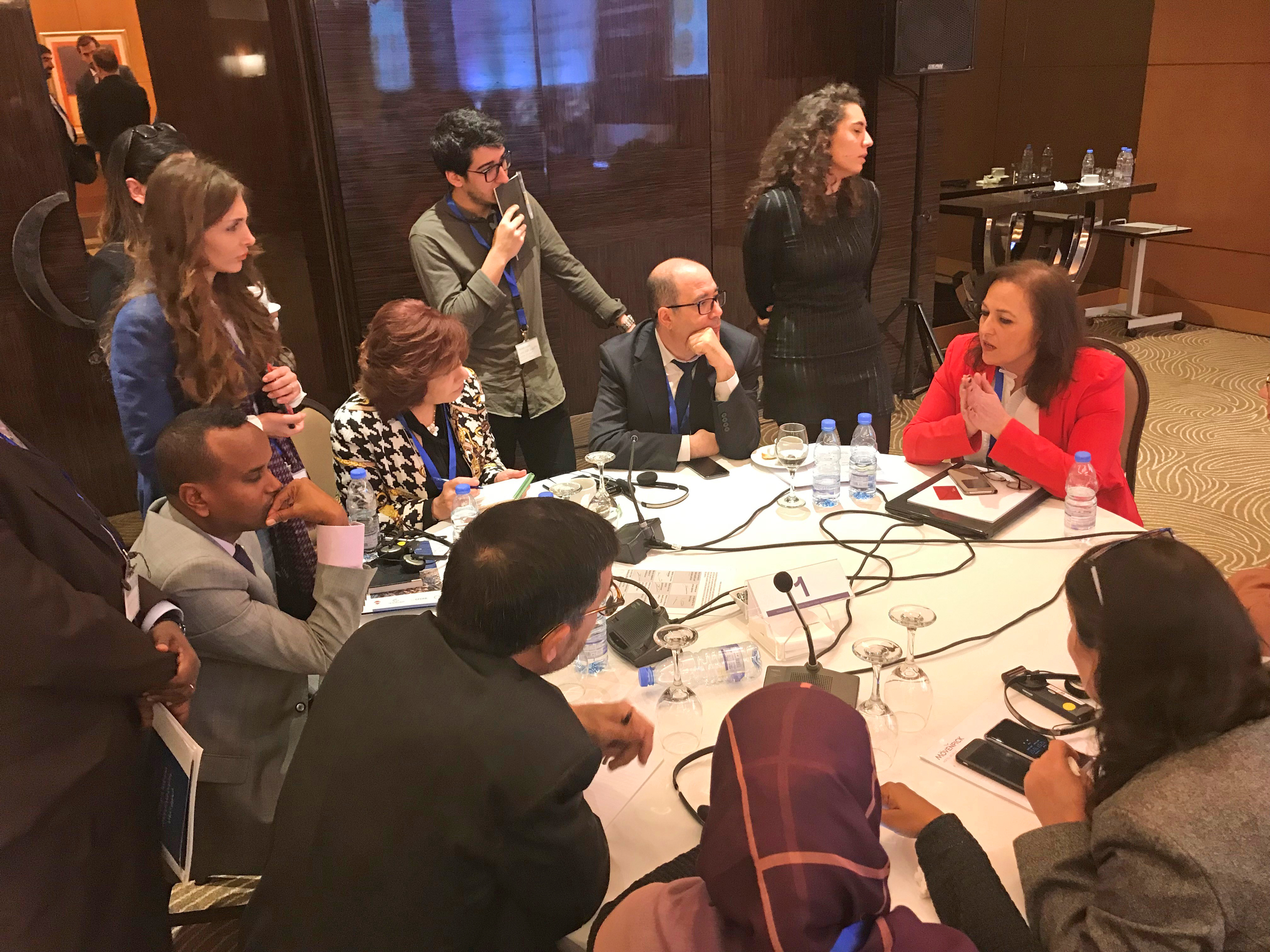Session Summary
A two-panel session dealt with design, prioritization and implementation. Participants heard how Tbilisi, Georgia developed its strategy using the 100 Resilient Cities framework, moving from agenda-setting to preliminary resilience assessments. In addition, the city developed and implemented a stakeholder engagement plan including focus group discussions, interviews and workshops. Bethlehem explained how municipal fragmentation and regulatory difficulties in Palestine hindered service delivery beyond municipal boundaries.
The ensuing discussions revealed that resilience needs were most reliably identified through evidential methods, that technical assessments alone were insufficient for strategy development, and that chosen actions needed to coalesce with the political agendas of municipalities. Lastly, the panel stressed that resilience strategies were ideally ongoing, adaptive and flexible, and required regular re-appraisal against emerging evidence.
The second panel took participants to New York, USA, where the city’s legal code includes a resilience strategy as a mandatory requirement, leading to effective institutionalization of the strategy development process. From Panama City, Panama, with its concern for flood mitigation infrastructure and improvement of public open spaces, emerged the need to consult with communities and stakeholders prior to implementation, an insight corroborated from Lebanon where interventions in informal settlements have required co-ordination across local and central government layers, and with stakeholders. Panelists also stressed the use of robust monitoring and evaluation as a tool to track and adjust strategies.



